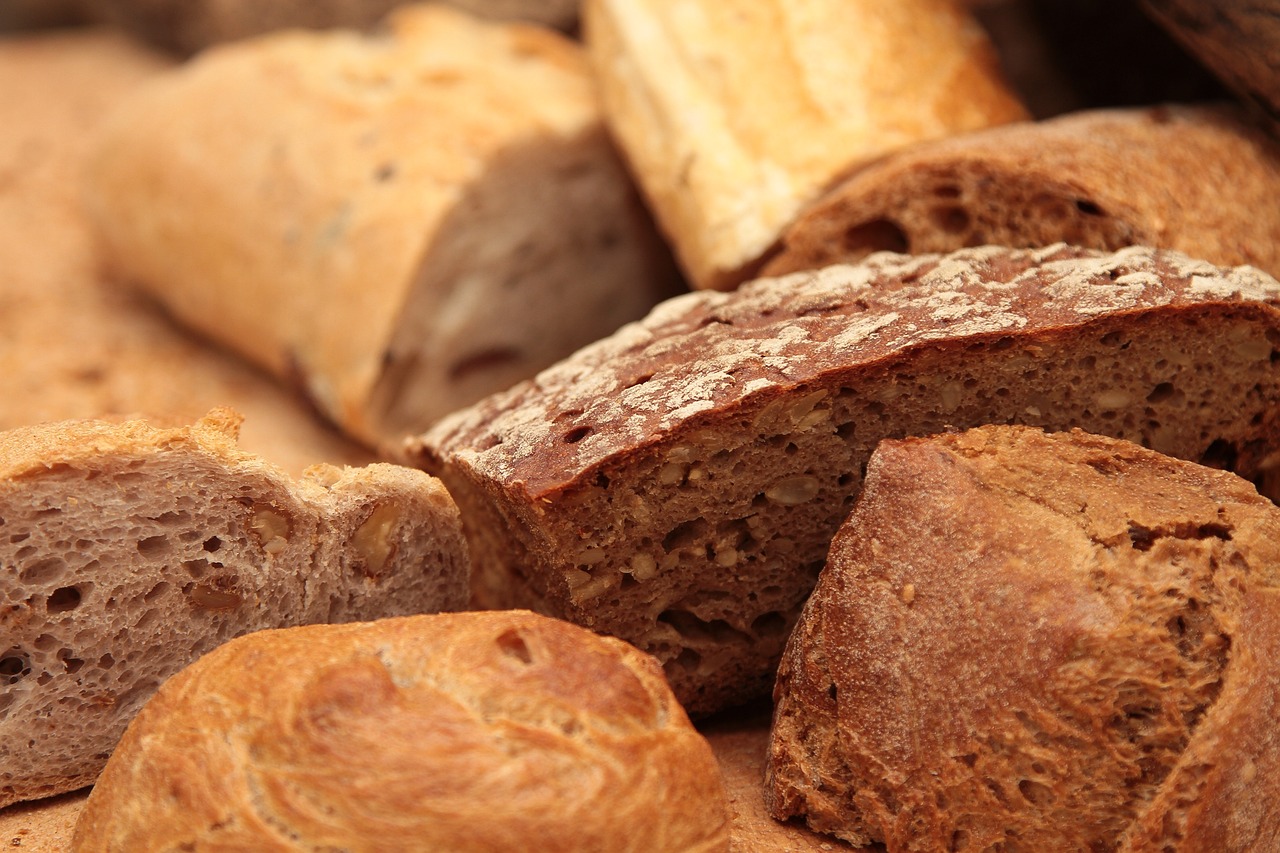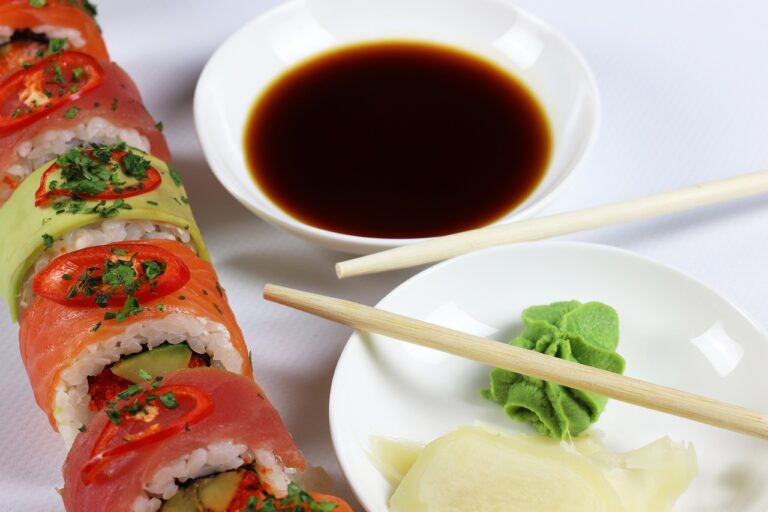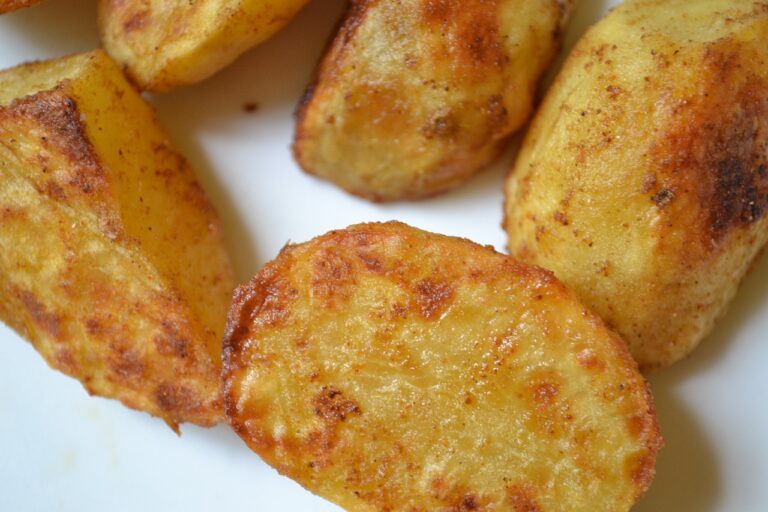10 Reasons Why You Are Craving Carbs

Carbohydrates are one of the primary macronutrients, playing a pivotal role in our body’s energy production. From the sandwich we eat at lunch to the rice or pasta we have for dinner, carbs are a significant part of our diet. For many, however, the desire for carbs goes beyond just dietary needs; they experience strong cravings. Why do these cravings occur? This article dives deep into ten reasons behind our carb cravings.
Why Am I Craving Carbs?
1. Immediate Energy Source
Carbohydrates are the body’s preferred source of immediate energy. When we consume carbs, they are broken down into glucose, which fuels our cells. Especially during moments of high energy expenditure, our body signals for more glucose.
For those involved in sports or intense physical activity, carbs are a must. They provide the quick energy required to sustain such activities, and without adequate intake, performance can suffer.
2. Serotonin Production
Carbs help in the production of serotonin, a neurotransmitter responsible for mood regulation. Consuming carbs can lead to an increase in serotonin levels, offering a mood boost.
People often turn to carb-rich foods during moments of stress or sadness, seeking the emotional comfort they provide. This is not just a mental association; there is a physiological link between carb intake and feelings of happiness.
3. Brain Functionality
Our brain primarily relies on glucose derived from carbs. When we’re low on glucose, cognitive functions such as attention, memory, and decision-making can be affected.
A decrease in carb intake can lead to a lack of concentration and a feeling of mental fog. Therefore, our body craves carbs to ensure the brain has a consistent energy supply.
4. Physical Depletion
After an intense workout or long day, our glycogen stores are depleted. Glycogen is the stored form of glucose in our muscles and liver.
Replenishing these stores is essential for muscle recovery and maintaining energy levels. As a result, post-exercise or after an exhausting day, we may find ourselves craving carb-rich foods.
5. Hormonal Changes
Hormonal fluctuations, especially in women during their menstrual cycle, can lead to increased carb cravings. Changes in progesterone and estrogen levels affect serotonin production and energy needs.
During certain phases of the menstrual cycle, the body’s energy demand increases, leading to stronger cravings for quick energy sources like carbohydrates.
6. Habit and Culture
From childhood, many of us are conditioned to celebrate, comfort, or reward ourselves with carb-heavy foods. Think birthday cakes, comfort foods, and festive feasts.
These habitual and cultural associations can induce cravings, especially during special occasions or moments of emotional significance.
7. Insufficient Fiber Intake
Fiber, found in many carb-rich foods, helps stabilize blood sugar levels and promotes satiety. Without sufficient fiber intake, one might experience blood sugar fluctuations and increased hunger.
By craving carb-rich foods, the body is potentially signaling for more fiber to help maintain balanced energy levels and promote digestive health.
8. Restricted Diets
When on a strict diet, especially those that limit carb intake like the ketogenic diet, it’s common to experience strong carb cravings. The body naturally desires what it’s being deprived of.
Over time, as the body adjusts to a lower carb intake, these cravings might decrease, but initially, the desire for carbs can be overwhelming.
9. Blood Sugar Fluctuations
Rapid spikes and drops in blood sugar can trigger carb cravings. Consuming simple sugars causes a quick spike in blood sugar, followed by a rapid drop, leading to feelings of hunger and a craving for more carbs.
To combat this, it’s essential to consume complex carbs and combine them with protein and fats to stabilize blood sugar levels.
10. Psychological Factors
Sometimes, carb cravings can be rooted in emotional needs rather than physiological ones. Emotional eating, boredom, or associating certain foods with comfort can lead to increased carb desires.
Recognizing these psychological triggers is crucial. By addressing the root emotional cause, one can better manage and understand their carb cravings.
Always Craving Carbs
Carbohydrates serve as the primary energy source for the human body. When someone says they are “always craving carbs,” it might be a signal from their body indicating a need for energy. Factors such as a fast metabolism, high physical activity levels, or even certain dietary choices can lead to an increased need for carbs. Alternatively, it could also be indicative of an emotional or habitual pattern, where carbs are consumed for comfort or due to established eating habits.
Many individuals often equate carbs with comfort food. The surge of serotonin, a neurotransmitter associated with feelings of well-being and happiness, after consuming carbohydrates might explain this association. When one consumes carbs, especially simple sugars, it can lead to a temporary mood boost, making it easy to develop a habit of reaching for carbohydrate-rich foods during moments of stress or sadness.
Body Craving Carbs
Our bodies are incredibly adept at signaling what they require. A craving for carbohydrates might be a physiological response to a decrease in blood sugar levels, prompting the individual to consume something to elevate it. Carbs, especially simple ones, are broken down quickly into glucose, providing a rapid energy source.
Besides energy needs, the body may also crave carbs due to hormonal fluctuations, especially in women. During certain phases of the menstrual cycle, increased carb cravings can be observed. Moreover, the body’s internal clock or circadian rhythm can influence carbohydrate cravings, with many people experiencing stronger desires for them later in the day.
Crave Cookies Carbs
Cookies are a staple in many cultures and are often loaded with carbohydrates, especially sugars. When someone craves cookies, it may be a mix of desiring the sweet taste and the texture of this baked good. The combination of fat, sugar, and often chocolate or other flavors creates a delightful taste sensation that can be hard to resist.
It’s worth noting that memories and emotions tied to cookies can also play a role in these cravings. Childhood memories of baking with family or the comforting feeling of having a cookie with a glass of milk might make these carbohydrate-rich treats particularly appealing. Emotional connections to food are strong, and the mind often associates certain foods with moments of joy, comfort, or nostalgia.
Crave Cupcake Carbs
Cupcakes are another baked treat that can be high in carbohydrates, particularly sugars. Just like with cookies, the allure of cupcakes is often a mix of their sweet flavor and their soft, cakey texture. The added bonus of frosting or fillings makes them even more tempting.
Social and cultural influences can also come into play. With the popularity of cupcake shops and TV shows dedicated to baking, cupcakes have become a fashionable dessert. Celebrations and gatherings might also be associated with cupcakes, reinforcing positive feelings and memories connected to them. Thus, a craving for a cupcake might not just be a desire for its carbohydrates, but also for the joy and celebrations it represents.
Craving Carbs After Running
After an intense run or any prolonged aerobic activity, the body depletes its glycogen stores, which are its primary source of energy. This depletion can lead to a strong craving for carbohydrates, as the body seeks to replenish these stores for future energy needs. Consuming carbs after a run can also aid in muscle recovery and reduce fatigue.
The post-run “runner’s high” is another factor to consider. This euphoric feeling is due to the release of endorphins, which can sometimes be coupled with a heightened appetite. The body recognizes the energy it has expended and sends hunger signals, often directed towards quick sources of energy like carbohydrates, to compensate for the deficit.
Craving Carbs After Working Out
Similar to running, any form of vigorous exercise can reduce the body’s glycogen stores. Muscles rely on glycogen as a primary energy source during workouts. Once a workout is completed, the body naturally craves carbs to replenish these stores and aid in muscle recovery. Carbohydrates are crucial for post-workout recovery as they help in protein synthesis and muscle repair.
Beyond the physiological needs, there’s a psychological aspect to consider. After a hard workout, individuals often feel they’ve “earned” a treat or need a reward, leading them to crave comfort foods that are typically high in carbs. Balancing these cravings with nutritious carb sources can promote better recovery and overall health.
Craving Carbs After Yoga
Yoga, though often seen as a relaxing and restorative practice, can be physically demanding. Depending on the style of yoga practiced, the body might need more energy for recovery. While the carb cravings after yoga might not be as intense as after a high-intensity workout, they still exist.
Moreover, yoga often emphasizes mindfulness and connection to one’s body. This heightened awareness can make individuals more attuned to their body’s signals, including hunger and specific cravings. Engaging in a mindful eating practice after yoga can help satisfy these cravings in a balanced manner.
Craving Carbs All The Time
Constant carb cravings can be indicative of several underlying factors. It might be a sign of an imbalanced diet, where the intake of proteins and fats is insufficient, leading the body to seek out its primary energy source, carbohydrates. Fluctuations in blood sugar levels, especially frequent drops, can also result in consistent cravings for quick energy sources like carbs.
Another consideration is emotional eating. Carbs are often sought after for their comforting qualities. Individuals undergoing stress, anxiety, or emotional turmoil might find themselves craving carbs all the time as a coping mechanism. Recognizing and addressing the root causes of these cravings can lead to a more balanced relationship with food.
Craving Carbs And Cheese
The combination of carbs and cheese is a classic comfort food pairing found in many dishes, like pizza, macaroni and cheese, and cheesy bread. Carbohydrates provide a quick energy source, while cheese, rich in fats and proteins, offers satiety. The combination of the two can be particularly satisfying both in terms of taste and fullness.
From a sensory perspective, the creamy, rich texture of cheese complements the often soft or crunchy texture of carbohydrate-rich foods. Additionally, both carbs and cheese can trigger a release of feel-good neurotransmitters, making dishes that combine the two especially appealing during moments of emotional distress or physical exhaustion.
Craving Carbs And Chocolate
Carbohydrates and chocolate together make for a powerful duo. Chocolate, especially milk chocolate, contains both sugar (a carb) and fat, hitting two major craving categories. Many people associate chocolate with pleasure and reward, given its unique taste and texture, and the release of endorphins it can stimulate.
Beyond the sensory delight, chocolate contains compounds like theobromine and phenylethylamine, which have mood-enhancing properties. When combined with the serotonin boost from carbohydrates, it’s no wonder that treats like chocolate chip cookies or chocolate-covered pastries are so beloved. These combined cravings can also be more pronounced during certain periods, like menstrual cycles for some women, due to hormonal shifts.
Craving Carbs And Salt
The juxtaposition of sweet and salty is a tantalizing flavor combination for many. Foods that combine these elements, like salted caramel or kettle corn, offer a unique taste experience that can be particularly crave-worthy. Carbohydrates often serve as the sweet component, while foods like chips or pretzels provide the salty kick.
Physiologically, salt cravings can emerge when the body’s sodium levels are low, especially after sweating or intense physical activity. When paired with a carb craving—often driven by a need for energy—the result is a hankering for snacks like salted crackers or potato chips. Moreover, the brain might associate these flavor combinations with pleasure or reward, reinforcing the craving.
Craving Carbs And Sugar
Sugar, a simple carbohydrate, provides an immediate energy source for the body. When someone craves both carbs and sugar, they’re essentially doubling down on a desire for quick energy. These cravings can arise from drops in blood sugar, physical exertion, or even boredom.
Emotionally, sugary carbs often serve as comfort foods. Consuming sugar can lead to a quick serotonin surge, offering temporary relief from stress, sadness, or fatigue. Over time, this can create a habit where the brain seeks out sugary carbs as a means of self-soothing during challenging moments.
Craving Carbs And Sweets
Craving carbs in the form of sweets is a common occurrence. Cakes, pastries, and candies are not just about the sugar content but also the experience—textures, flavors, and memories associated with them. These foods are often linked to celebrations, rewards, or comforting moments, strengthening their emotional appeal.
Furthermore, the body’s internal clock or circadian rhythm can influence these cravings. Many individuals report stronger desires for sweets in the late afternoon or evening. Recognizing patterns in these cravings can help individuals make informed choices, balancing indulgence with nutritional needs.
Craving Carbs Before Bed
The period just before bedtime can be a vulnerable time for cravings, especially for carbs. For some, a small carb-rich snack can help induce sleepiness, thanks to the release of serotonin and its conversion to the sleep hormone, melatonin. This can create a pattern where the body starts associating carb intake with sleep preparation.
However, habitual pre-bed snacking can be problematic, especially if the choices are high in sugars and lacking in nutrients. Over time, this can disrupt sleep patterns and impact overall health. Balancing these cravings with healthier carb sources or incorporating relaxation techniques can help manage late-night snacking urges.
Craving Carbs Breastfeeding
Breastfeeding requires a significant amount of energy, as mothers are essentially producing food for their infants. This increased energy expenditure often leads to heightened hunger, with carbs being a primary craving due to their quick energy-releasing properties.
Moreover, breastfeeding can influence hormone levels, impacting appetite and cravings. Prolactin, a hormone elevated during breastfeeding, can influence appetite regulation. As a result, many breastfeeding mothers experience strong cravings for nutrient-dense foods, including carbohydrates, to support milk production and their own energy needs.
Craving Carbs In The Evening
Evening carb cravings might be the result of several intertwined factors. For some, the body’s natural circadian rhythms can induce cravings later in the day, as the body prepares for the rest phase and seeks out quick energy sources. If meals earlier in the day were lacking in sufficient carbohydrates or calories, the body might signal a need for energy replenishment in the evening.
Psychologically, the evening is a time when many people wind down and seek comfort. After a day of stress or activity, the mind might desire relaxation and reward. Carbohydrate-rich foods, especially those that are sweet or comforting, often fit the bill as they provide both physiological satisfaction and emotional solace.
Craving Carbs In The Morning
Morning cravings for carbohydrates can stem from an overnight fast. As the body goes hours without food during sleep, blood sugar levels drop. Upon waking, the body seeks to replenish these levels, leading to a desire for quick energy sources like carbs. Breakfast foods like cereals, toasts, and pastries are often high in carbs, satisfying this immediate need.
Furthermore, carbs in the morning can help kickstart the brain and body, providing the necessary fuel for the day’s activities. From a mood perspective, the serotonin boost from morning carbs can set a positive tone for the day, making carb-rich breakfasts appealing for both physiological and psychological reasons.
Craving Carbs In Winter
Winter often brings about a shift in dietary desires, with many individuals reporting increased cravings for carbohydrate-rich foods. From an evolutionary standpoint, this might be a survival mechanism, with the body seeking out energy-dense foods to prepare for colder months and potential scarcity.
Additionally, shorter daylight hours and decreased exposure to sunlight during winter can lead to seasonal affective disorder (SAD) for some individuals. This condition can bring about mood shifts and increased cravings for carbs, which can temporarily boost serotonin levels. Comfort foods, which are often carb-heavy, also become particularly appealing during the colder months, as they provide warmth and emotional solace.
Craving Carbs On Rest Day
Even on rest days, when physical activity is minimized, the body continues to repair and recover from previous workouts. This recovery process can lead to cravings for carbohydrates, which aid in muscle repair and glycogen replenishment. While the energy expenditure might be lower on rest days, the body’s nutrient needs remain significant.
Additionally, on rest days, individuals might mentally feel that they should indulge or reward themselves, leading to cravings for comfort foods that are rich in carbs. Recognizing the body’s genuine needs and differentiating them from emotional or habitual eating patterns can help in addressing these cravings in a balanced way.
Craving Carbs Substitute
When faced with consistent carb cravings, many individuals seek out substitutes to satisfy these desires without overindulging in sugars or refined carbs. Foods like whole grains, legumes, and vegetables can provide the body with complex carbohydrates, offering sustained energy without the rapid blood sugar spikes associated with simpler carbs.
For those seeking lower-carb alternatives, foods like cauliflower (used in dishes like cauliflower rice or pizza crust) or spiralized vegetables (as pasta substitutes) have gained popularity. These alternatives can provide the texture and experience of carb-rich foods without the same caloric or carbohydrate content.
Craving Carbs When Stressed
Stress eating is a common phenomenon, with carbohydrates often being the go-to comfort food. When stressed, the body releases cortisol, a hormone that can increase appetite and specifically enhance cravings for quick energy sources like sugars. Consuming carbs can lead to a temporary serotonin boost, providing temporary relief from stressful feelings.
However, this relief is often short-lived, and relying on carbs as a primary coping mechanism can lead to a cycle of emotional eating. Over time, this can impact physical health and exacerbate feelings of guilt or stress. Finding alternative stress-reducing techniques, like meditation, exercise, or journaling, can be beneficial in breaking this cycle.
Craving Carbs When Tired
Fatigue can amplify the body’s desire for quick energy sources. When tired, the body seeks out carbohydrates to provide an immediate boost in energy and alertness. The brain, in particular, relies on glucose as its primary energy source, making carb cravings particularly intense when mental fatigue sets in.
Moreover, when exhausted, decision-making abilities can be compromised, leading to more impulsive food choices. This might explain why, after a sleep-deprived night, individuals are more likely to reach for sugary snacks or caffeinated beverages loaded with sugars. Prioritizing sleep and rest can help in mitigating these intense carb cravings.
Craving Carbs While Sick
Illness can sometimes bring about specific dietary cravings, with carbohydrates being a common one. When the body is fighting off an infection or recovering, it requires additional energy, making carbs an appealing choice. Simple carbs can be especially comforting when sick, as they require minimal digestion and provide quick energy.
In addition, comfort foods, which are often rich in carbs, can have an emotional appeal during times of illness. Soups, porridges, and toasts are not just easy on the stomach but also offer a sense of warmth and comfort. It’s crucial, however, to balance these carb intakes with other essential nutrients to support recovery.
Craving Plain Carbs
There are times when the body and mind crave plain carbs, devoid of embellishments or strong flavors. Foods like plain rice, pasta, or bread can be particularly appealing. Physiologically, these simple carbs can provide an immediate energy source, satisfying the body’s need for glucose without the complexities of added flavors or ingredients.
Psychologically, plain carbs can act as comfort foods. For many, they might harken back to childhood or simpler times, offering a form of emotional solace. The soft, mild nature of these foods can also be gentle on the stomach, making them a go-to choice during times of digestive discomfort or illness.
Craving Refined Carbs
Refined carbs, like white bread, pastries, and sugary cereals, are processed, removing most of their natural fiber and nutrients. The allure of these foods often comes from their immediate impact on blood sugar, providing a rapid energy boost. The brain responds positively to this swift energy surge, reinforcing the desire for more refined carbs in the future.
However, this quick spike in blood sugar is often followed by a sharp drop, leading to feelings of fatigue and another round of cravings. Regularly consuming refined carbs can set up a cycle of highs and lows, making it essential to balance these intakes with whole grains and other nutrient-dense foods.
Craving Salty Carbs
Salty carbs, like chips or pretzels, combine the energy benefits of carbohydrates with the flavor enhancement of salt. Physiologically, the body might crave salt during times of dehydration or after losing sodium through sweating. When combined with the body’s regular need for energy, salty carbs become particularly enticing.
Moreover, the combination of salt and carbs can stimulate the pleasure centers in the brain. While indulging occasionally is okay, it’s essential to monitor intake and ensure a balanced diet that isn’t excessively high in sodium.
Craving Simple Carbs
Simple carbs are sugars, either naturally occurring (like in fruits) or added to foods. They are digested quickly, providing immediate energy. Cravings for simple carbs can arise from sudden drops in blood sugar, intense physical activity, or emotional triggers. The body recognizes that these carbs can offer a rapid energy and mood boost.
However, while they provide quick energy, simple carbs lack the sustained energy that complex carbs offer. Over-relying on simple carbs can lead to energy crashes and a cycle of repeated cravings. Balancing these cravings with more complex carbohydrate sources can help stabilize energy levels throughout the day.
Craving Starchy Carbs
Starchy carbs, like potatoes, corn, or grains, are complex carbohydrates that provide sustained energy. These carbs are broken down more slowly than simple sugars, offering a steady release of glucose into the bloodstream. Cravings for starchy carbs can arise from genuine energy needs, especially after prolonged physical or mental activity.
Starchy foods also have a comforting aspect. Dishes like mashed potatoes, cornbread, or pasta are often associated with hearty meals and gatherings, adding an emotional dimension to these cravings. Including starchy carbs in a balanced diet can support energy needs while also providing essential nutrients and fiber.
Craving Sweet Carbs
The allure of sweet carbs, like pastries, candies, or sugary cereals, is multifaceted. Biologically, these foods provide immediate energy, satisfying the body’s need for glucose. The sweetness can also stimulate the release of endorphins, enhancing feelings of pleasure and reward.
Emotionally, sweet carbs are often tied to memories, celebrations, or comfort. They can serve as treats or rewards, making them particularly appealing during times of stress or celebration. While occasional indulgence is natural, it’s vital to enjoy these foods in moderation and balance them with nutrient-rich choices.
Craving Yeast Bread
Yeast bread, with its unique aroma and texture, holds a special place in many cultures and diets. The fermentation process that yeast undergoes adds depth to the flavor and creates a comforting aroma. Physiologically, bread offers a carbohydrate source that satisfies hunger and provides energy.
The act of baking or consuming yeast bread can also be therapeutic. The scent of freshly baked bread can evoke memories and feelings of home or comfort. For many, bread serves as a staple, and cravings for it can be both a physical need for sustenance and an emotional desire for warmth and familiarity.
Cravings No Carbs
In some dietary approaches, like the ketogenic diet, carb intake is minimized. During the initial phases of such diets, many individuals report strong carb cravings as the body adjusts to burning fat for energy instead of glucose. These cravings arise from both the body’s physiological need for glucose and the brain’s association of carbs with pleasure and satisfaction.
However, over time, as the body becomes “fat-adapted,” these cravings often diminish. Individuals following a low-carb or keto approach might find alternative sources of energy and satisfaction from fats and proteins. Still, it’s essential to listen to the body’s signals and ensure a balanced nutrient intake.
How To Stop Craving Carbs
Managing carb cravings involves a blend of physical and psychological strategies. Physiologically, ensuring a balanced intake of complex carbs, proteins, and healthy fats can stabilize blood sugar levels and reduce sudden cravings. Drinking adequate water and managing stress through relaxation techniques can also help.
On the psychological side, recognizing emotional triggers for carb cravings is crucial. Mindful eating practices, where one pays full attention to the act of eating without distractions, can help differentiate between genuine hunger and emotional eating. Finding alternative ways to cope with emotions, like journaling, talking to a friend, or engaging in a hobby, can reduce reliance on carbs for emotional comfort.
Sudden Craving For Carbs
A sudden, intense craving for carbs might feel overwhelming, but it can be traced back to various physiological or psychological triggers. Physiologically, if you’ve recently engaged in intense physical activity, your muscles may be depleted of glycogen, prompting your body to signal the need for carbs to replenish these energy stores. Similarly, if you’ve gone a long period without eating, your blood sugar levels might dip, prompting a desire for quick energy from carbs.
Emotionally, sudden carb cravings can arise from stress, emotional upheavals, or even specific memories tied to carbohydrate-rich foods. It’s not uncommon for emotions and food to be interlinked, with certain foods serving as comfort or an instant mood enhancer. Recognizing the root cause of a sudden carb craving can help in addressing it appropriately, either by consuming a balanced carb source or finding alternative ways to cope with emotional triggers.
Why Am I Craving Carbs And Fat
Carbs and fats are the primary energy sources for the body, and together, they can create highly palatable foods. Think about some classic comfort foods like pizza, pasta with creamy sauces, or pastries; they often combine carbs and fats. From a physiological perspective, the body might crave this combination when it needs a dense energy source. Both carbs and fats provide a feeling of satiety and fullness, making their combination particularly satisfying.
Psychologically, foods that combine carbs and fats can stimulate the brain’s reward centers. This makes them not only delicious but also comforting and emotionally rewarding. If you find yourself consistently craving this combination, it might be worth assessing if there’s an emotional or habitual pattern to these cravings, or if there’s a genuine physiological need.
Why Am I Craving Carbs And Salt
The combination of carbs and salt can be irresistibly tasty. Foods like salty pretzels, fries, or salted popcorn play into this dynamic. Physiologically, salt plays a crucial role in our body’s fluid balance and nerve function. After periods of heavy sweating or dehydration, the body might crave salt to restore balance.
When paired with carbs, the appeal becomes twofold. Carbs offer quick energy, while salt enhances flavor and addresses the body’s electrolyte needs. This combination can also be comforting and linked to many snack foods, making it a common craving during times of relaxation or stress.
Craving Carbs 4 Weeks Pregnant
Pregnancy brings about a plethora of hormonal and physiological changes that can influence dietary cravings. At around 4 weeks pregnant, the body is just beginning to undergo these shifts. An increased caloric need can prompt cravings for energy-dense foods, like carbohydrates. Moreover, hormones like hCG, which surge during the early stages of pregnancy, can influence appetite and cravings.
Emotionally, the knowledge and realization of being pregnant can bring a mix of emotions. For some, carbs serve as comfort, especially during times of uncertainty or stress. While it’s essential to address these cravings, it’s equally important to ensure a balanced diet for the health of both the mother and the developing baby.
6 Weeks Pregnant Craving Carbs
As pregnancy progresses, so do the body’s nutritional needs. By 6 weeks, morning sickness might set in for many women, leading to aversions to certain foods and a preference for bland, carbohydrate-rich foods that are easy on the stomach. Crackers, toast, and simple cereals can be particularly appealing during this time.
Additionally, the continued surge in pregnancy hormones can influence taste preferences and cravings. While it’s essential to listen to the body and provide it with what it needs, it’s also crucial to ensure that the diet remains varied and nutrient-rich, catering to the developing baby’s needs and supporting the mother’s health.
Craving Carbs 7 Weeks Pregnant
The pattern seen in early pregnancy often continues into the 7th week. Morning sickness, for many, is still a dominant factor, making carb-rich foods a go-to for their ease on the stomach. The body’s increasing caloric and nutritional demands might also amplify cravings for quick energy sources.
Emotionally, as the reality of pregnancy sets in, there might be periods of stress, anxiety, or joy, all of which can influence dietary desires. Carbs can offer comfort, satiety, and a mood boost. However, balancing these cravings with proteins, healthy fats, and a variety of fruits and vegetables ensures a comprehensive nutrient profile for both mother and baby.
8 Weeks Pregnant Craving Carbs
By the 8th week of pregnancy, many women experience pronounced symptoms, including fatigue, which can lead to increased carb cravings. Carbohydrates provide a quick energy source, helping combat feelings of tiredness. Additionally, the body is rapidly supporting the growth and development of the fetus, further amplifying energy needs.
It’s also a period where many women have their first prenatal appointments, leading to a mix of emotions. Food can serve as a source of comfort, celebration, or even distraction. Listening to the body’s signals, while ensuring a balanced and varied diet, remains paramount during this phase of pregnancy.
Craving Carbs 9 Weeks Pregnant
As the first trimester nears its end, the body is in full pregnancy mode. The increased blood volume to support the fetus can lead to even more pronounced fatigue, pushing many women to seek quick energy from carbs. Nausea and food aversions might still be present, making simple carbs a preferred choice due to their blandness and digestibility.
Pregnancy is also a time of heightened emotions and hormonal fluctuations, both of which can influence cravings. While it’s natural to address these cravings, incorporating a mix of complex carbs, proteins, and healthy fats can provide sustained energy and ensure all essential nutrients are consumed.
Craving Carbs 10 Weeks Pregnant
By the 10th week, the fetus has crossed significant developmental milestones. While energy demands continue to be high, some women might start seeing a reduction in morning sickness, allowing for a more varied diet. However, the comfort and quick energy provided by carbs can still make them a dominant craving.
Dietary cravings during pregnancy are influenced by a mix of physiological needs, hormonal fluctuations, and emotional states. As always, while it’s essential to address cravings and listen to the body’s signals, a varied diet rich in essential nutrients supports optimal health for both mother and child.
Craving Carbs 37 Weeks Pregnant
As women approach the end of their pregnancy at 37 weeks, their bodies are making final preparations for childbirth. The energy requirements remain high as the baby continues to grow, often leading to cravings for carbohydrate-rich foods. The increased weight and changes in body mechanics can also cause fatigue, pushing many women to seek quick energy boosts from carbs.
Additionally, the anticipation of labor and the arrival of the baby can bring a mix of emotions, from excitement to anxiety. Comfort foods, many of which are carb-rich, can provide emotional solace during this waiting period. While it’s natural to indulge in cravings, it’s also essential to ensure a balanced diet to maintain energy levels and overall health as the due date approaches.
Craving Carbs 38 Weeks Pregnant
At 38 weeks, pregnancy is in its final stages, and the body is gearing up for labor. The baby is almost fully developed but continues to put on fat, preparing for life outside the womb. This process demands energy, often leading to increased carb cravings for the mother. Furthermore, as the baby occupies more space, there might be digestion-related discomforts, making easily digestible carbs appealing.
Emotionally, the nearing due date can heighten feelings of restlessness, anticipation, or even stress. Carbs, especially comfort foods, can offer a temporary reprieve from these emotions. As always, it’s important for expecting mothers to strike a balance, addressing cravings while ensuring that they consume a nutrient-rich diet for optimal health and preparedness for labor.
Conclusion
Understanding the reasons behind our carb cravings can empower us to make informed dietary choices. Whether it’s the body signaling for more energy, the brain needing fuel, or an emotional desire for comfort, recognizing the underlying cause can help address the craving effectively. By listening to our bodies and ensuring a balanced intake of nutrients, we can satisfy our carb cravings in a healthy and mindful manner.






